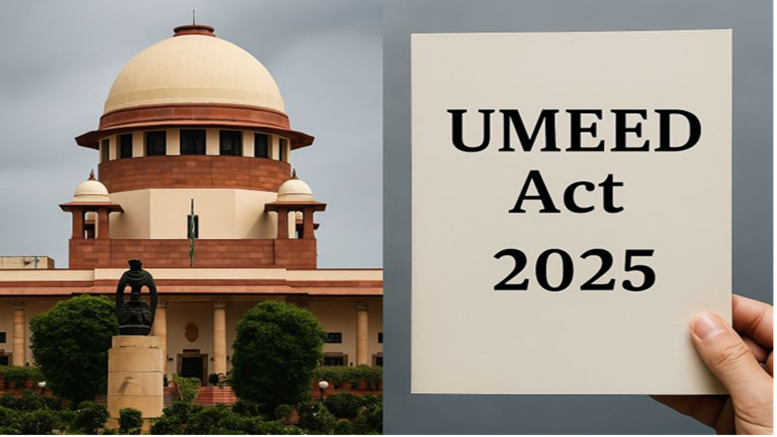- Courses
- GS Full Course 1 Year
- GS Full Course 2 Year
- GS Full Course 3 Year
- GS Full Course Till Selection
- Online Program
- GS Recorded Course
- NCERT (Recorded 500+ Hours)
- Polity Recorded Course
- Geography Recorded Course
- Economy Recorded Course
- AMAC Recorded Course
- Modern India, Post Independence & World History
- Environment Recoded Course
- Governance Recoded Course
- Science & Tech. Recoded Course
- International Relations and Internal Security Recorded Course
- Disaster Management Module Course
- Ethics Recoded Course
- Essay Recoded Course
- Current Affairs Recoded Course
- CSAT
- 5 LAYERED ARJUNA Mentorship
- Public Administration Optional
- ABOUT US
- OUR TOPPERS
- TEST SERIES
- FREE STUDY MATERIAL
- VIDEOS
- CONTACT US
PSYCHOLOGICAL WARFARE [PSYWAR]
PSYCHOLOGICAL WARFARE [PSYWAR]
14-05-2025
![img-PSYCHOLOGICAL WARFARE [PSYWAR]](https://i.filecdn.in/755esias/PSYCHOLOGICALWARFAREPSYWAR-1747206772505.jpg)
Why in News:
- After the Operation Sindoor undertaken by Indian Armed forces, a barrage of coordinated disinformation was carried out by social media handles and mainstream media in Pakistan.
- Its sole objective was to instill fear among the Indian masses through fake propaganda and misinformation.
- This psychological warfare [PSYWAR] had to be actively debunked by the Press Information Bureau (PIB) as even the reputed Indian Media houses fall prey to it.
What is Psychological Warfare?
- Psychological warfare is the use of propaganda, threats, and other psychological techniques to influence the thinking or behavior of an opponent.
- It aims to demoralize or intimidate them and break down their will without using physical force.
- It's a form of non-combat warfare that aims to affect an enemy's morale, will to fight, and overall support for a conflict through manipulative tactics
- In essence, psychological warfare is a battle of minds, where the goal is to influence an opponent's perception of reality and their actions based on that perception.
- Psychological warfare can be disseminated by face-to-face communication, audio visual means (television), audio media (radio or loudspeaker), visual media (leaflets, newspaper, books).
- The weapon is not how it’s sent, but the message it carries and how that message affects the recipient.
Key Aspects of Psychological Warfare:
- Propaganda: Spreading information, often biased or misleading, to shape public opinion and influence behavior.
- Threats and Intimidation: Using the threat of force or other negative consequences to induce fear and compliance.
- Psychological Techniques: Employing various methods like misinformation, manipulation, and emotional appeals to undermine an opponent's resolve.
- Multifaceted Objective: Aims to weaken the enemy's will to fight, gain support for one's own cause, and potentially incite internal conflict within the opposing force.
Historical Usage of Psychological Warfare:
- Although often looked upon as a modern invention, psychological warfare is of ancient origin.
- Cyrus the Great employed it against Babylon, Xerxes against the Greeks, and Philip II of Macedon against Athens.
- The conquests of Genghis Khan were aided by expertly planted rumors about large numbers of ferocious Mongol horsemen in his army.
- Psychological warfare has been used throughout history, including during World War II, the Cold War, and in more recent conflicts.
- During World War II Propaganda campaigns like "Tokyo Rose" and "Axis Sally" were used to demoralize the enemy and bolster the allies.
- The use of propaganda and disinformation by both sides during the Cold War aimed to influence public opinion and undermine the opposition.
Psychological Warfare in the India-Pakistan Conflict:
- Psychological warfare (PSYWAR) is a significant aspect of the complex relationship between India and Pakistan, particularly within the context of the Kashmir conflict.
- Pakistan has employed various PSYWAR techniques, including propaganda, misinformation, and cyber warfare, to influence public opinion, demoralize & undermine India's position on the global stage.
- The Kashmir dispute has been a major flashpoint for PSYWAR, with Pakistan using media and propaganda to portray its claims over it.
- The usage of PSYWAR was evident post the 2019 Balakot airstrike when Pakistan denied the Indian Air Force's claim of shooting down a Pakistani F-16 jet.
- PSYWAR tactics were also used when Pakistani social media accounts mocked Wing Commander Abhinandan Varthaman after his capture.
PSYWAR Tactics in India-Pakistan Conflict:
Nuclear Blackmail:
- It is the strategy which uses the threat of use of nuclear weapons to force an adversary to perform some action or make some concessions.
- PM Modi in his speech post Operation Sindoor has reiterated that India won’t tolerate Pakistan Nuclear blackmail strategy anymore.
Propaganda and Misinformation:
- Pakistan has been accused of disseminating anti-India fake narratives through social media.
- For example, falsely attributing events like the Easter bombings in Sri Lanka and the Galwan Valley clash to India.
Cyber Warfare:
- Pakistan and China have been engaged in cyber espionage and cyberattacks, including the targeting of India’s critical infrastructure.
Influence Operations:
- Pakistan has been accused of using intelligence and cyber operations to influence the politics and economy of bordering region of Jammu & Kashmir
Media Manipulation:
- They aim to manipulate international perceptions of India through foreign media outlets and publications
- We recently saw, Pakistan’s Minister spreading misinformation in his interview to foreign media about the Operation Sindoor conducted by Indian army.
Impact of Psychological Warfare [PSYWAR]:
- Demoralization and loss of confidence: Erode the enemy's morale, weaken their resolve, and undermine their trust in their leadership.
- Increased social unrest and instability: Contribute to social division, distrust, and even incite unrest within a society.
- Influence on public opinion: Propaganda and Disinformation can shape public perception and influence political discourse.
- Impact on international relations: Can be used to influence foreign policy, damage diplomatic relationships, and destabilize regions.
- Conflict Escalation: PSYWAR can exacerbate tensions and increase the risk of conflict escalation.
- Mental health consequences: Can lead to mental health issues like depression and other psychological distress.
Conclusion:
Psychological warfare [PSYWAR] plays a significant role in the India-Pakistan relationship, shaping perceptions, influencing policy, and potentially contributing to conflict escalation.
Psychological warfare is a complex and multifaceted strategy that can be a powerful tool in achieving strategic objectives. However, its use raises ethical concerns and its effectiveness is not guaranteed.
|
Also Read |
|
| NCERT Books For UPSC | |
| UPSC Monthly Magazine | Best IAS Coaching in Delhi |



